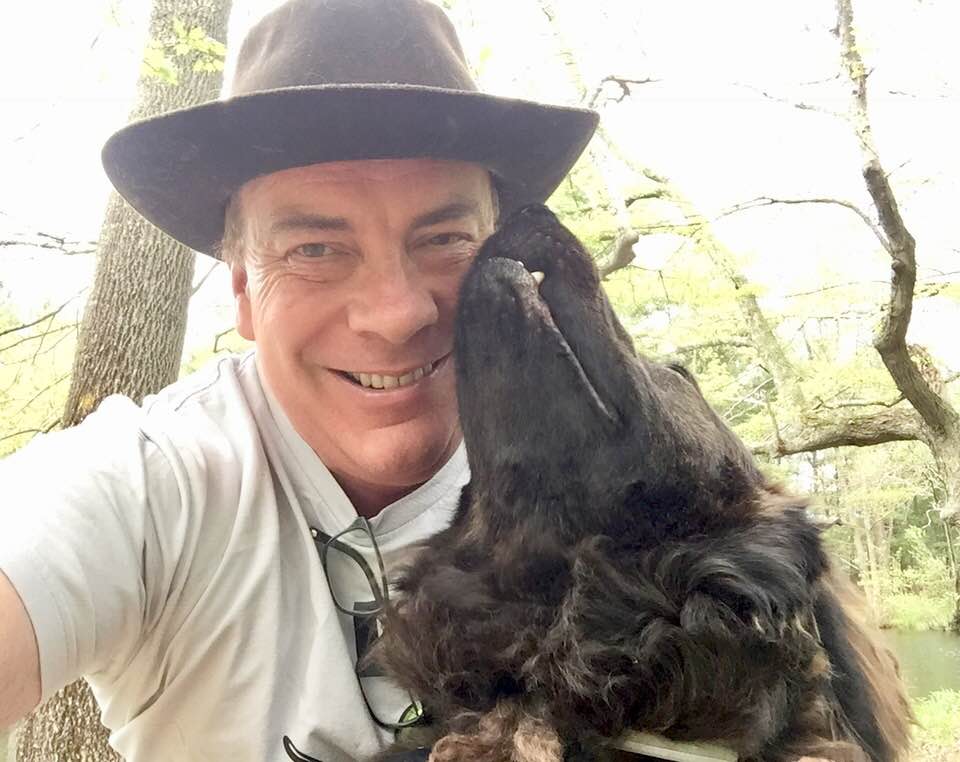Photo courtesy of Justin Wyatt.
Professor uses his experience in the TV industry to inspire his students
From ABC TV in Los Angeles, California to E! Network and a few other well-known channels in-between, Justin Wyatt, a University of Rhode Island film media and communication studies professor has had his fair share of exhilarating experiences in the film industry to share with his students.
Wyatt began his career as a professor at the University of Arizona. When the internet took off during the “dot com boom” of the late ‘90s, Wyatt left his tenure position at the University to work in the TV industry.
“I spent most of that time either as a vice president or as a consultant of primary research,” Wyatt said. “What that means is that I was the voice of the consumer. I would do focus groups or talk one-on-one with people about shows, or make surveys and get information back. Then I would make recommendations about what [the network] should do the next season with the show, or with characters or story lines.”
Working with the audiences of shows such as “Keeping Up With the Kardashians,” Wyatt said he learned a lot about what interests people.
“One summer around five years ago, I spent the whole summer doing research about ‘Keeping Up With the Kardashians,’” Wyatt said. “I thought it was the sex and the glam and what they were wearing that made them popular. But, the Kardashians, for those viewers who really like it, it’s one of two things: It’s the fantasy of having a large group of sisters who can squabble with each other, but if anyone from the outside comes to get them, they’re protective [of each other]. The other appeal is to have a large blended family.”
One of the most important things, Wyatt said, is not what you necessarily think of what you’re viewing, but receiving feedback from a larger group and truly understanding other’s opinions. This has deeply impacted his approach to teaching.
“I always felt like doing focus groups and talking to consumers about what they liked and what they’re passionate about was really an interesting and challenging task to do, because people are complex,” Wyatt said. “When I came back to teaching, I really care what my students have to say, what they have to feel and I want them to engage with the material. I always tell them ‘You don’t have to love the material, I just want you to grapple with it, to think about it, to wrestle with it and to come to an understanding of it. But whether you like it or not doesn’t matter so much.’”
Because there are so many ways of viewing film and art, Wyatt said he learns a lot from his students because they all have different, “enlightening” understandings of the material that he presents to them. He explained his position as a teacher as “privileged” because he gets to learn from his students in many ways.
“I think a lot of times people need to feel that their opinions and their perspectives are wanted,” Wyatt said. “So much of our society is about yelling and screaming, and I’m much more into understanding compassion and kindness. I’m constantly enlightened by my students. It is fascinating to me, the perspectives and the insights and opinions that my students have, and it’s as much an education for me as it is for my students.”
Having grown up in Canada, Wyatt received his undergraduate degree in economics from the University of British Columbia in Vancouver. He later received his doctorate in film and TV studies at the University of California, Los Angeles.
Wyatt remembered his first year as an undergraduate student as overwhelming due to not knowing what field of study he wanted to pursue.
“When I was an undergrad, I took a lot of random courses, I hadn’t declared a major, and I came [really] close to dropping out, like, 20 times,” Wyatt said. “Not because I was failing, but just because I wasn’t that interested in it.”
He explained that with one professor taking the time to care about him and his interests, he realized that he wanted to pursue economics, which ultimately led him to further his education and achieve all that he has now.
“Find out what you like doing, what your passions are, what you care about, and build a course of study around that,” Wyatt said. “Your passion for the subject will take you so far down the road, that everything else will eventually follow: the money, the profession, the career.”
Wyatt said among his favorite TV programs are shows revolving around animals and “Breaking Bad,” which he has discussed in classes he has taught.
“I think ‘Breaking Bad’ is an amazing show,” Wyatt said. “It’s tough to watch in some ways because it’s so graphic, but in terms of characters and storyline, it is absolutely beautifully done.”

